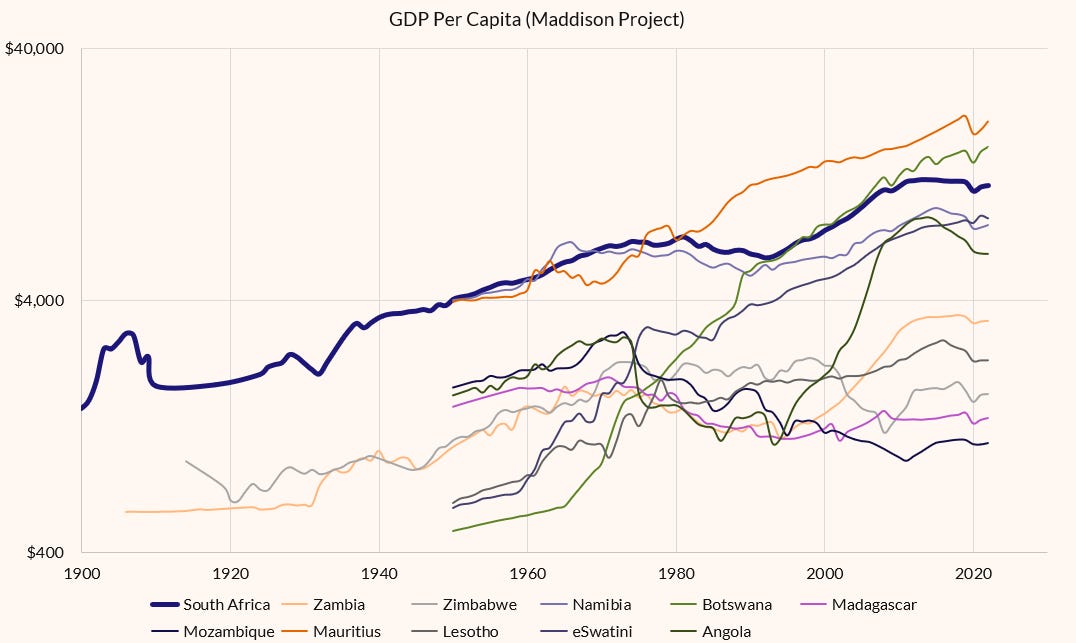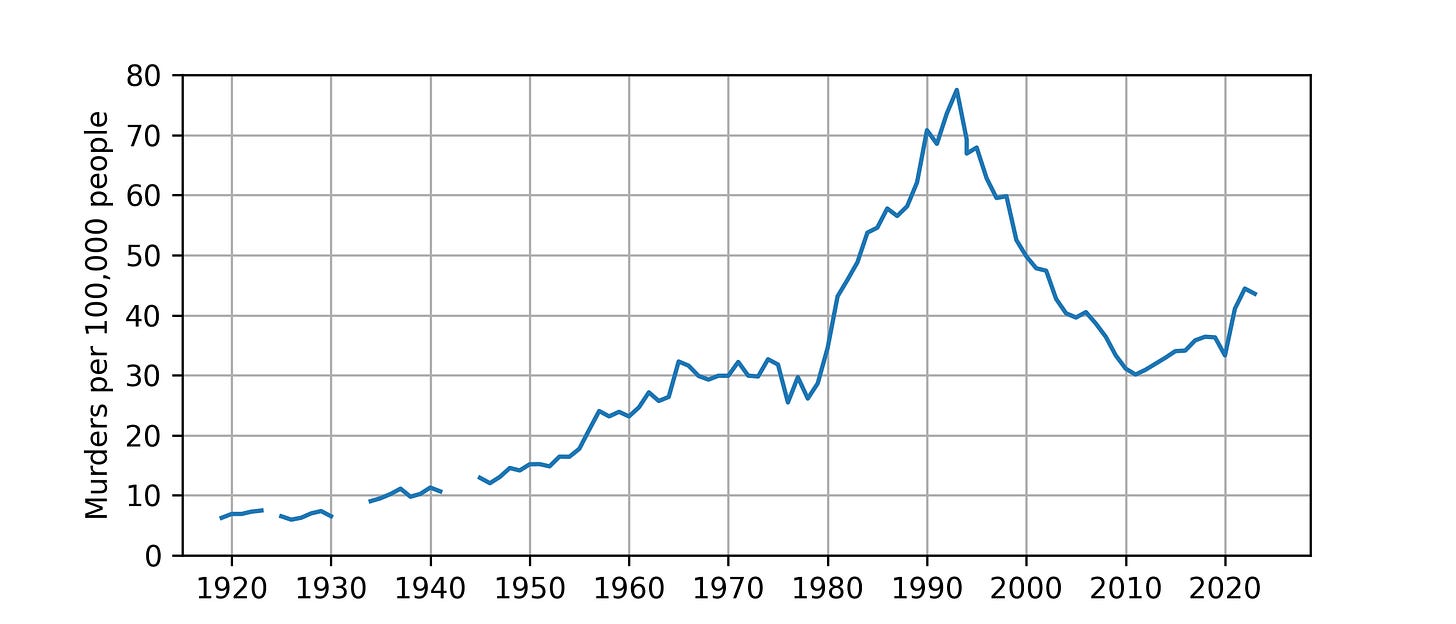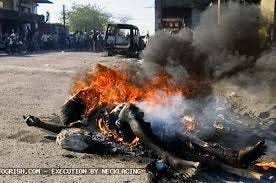Last week Lyman Stone argued that Apartheid was bad for South Africans. Stone’s analysis is deeply confused. I’m not an expert on South Africa so I won’t attempt a full analysis of the effects of the Apartheid regime; I’m just going to point out a few clear points that Stone got wrong.
1. Mauritians are not Africans.
Stone writes:
Note that only about 3% of Botswana is white, and about 2% of Mauritius, and under 1% of Eswatini. It turns out that African countries really can have economic growth even without a white apartheid regime!
The majority of the Mauritian population are not black Africans. They are Indians. Mauritius was an uninhabited island prior to its discovery by Europeans. The majority of the Mauritian population is descended from Indian workers who went to work there in the 18th and 19th centuries. Richard Lynn estimated the average IQ of Mauritians at 89, (compared to 64 for Mozambique). The fact that Mauritius is the best-performing country in Stone’s sample is a point in favor of thesis that African populations cannot competently govern themselves, not against it.
2. Botswana did not have racial Apartheid laws, but the black majority was not allowed to govern.
Up until very recently Botswana had a fake democracy. I’m not a fan of democracy and I think Botswana’s system was great. Their first president after independence was Sir Seretse Khama, who also happened to be the crown prince of Botswana’s most powerful tribe. Khama had been educated at the London School of Economics and he implemented classically liberal laissez-faire policies in Botswana. He also hired European colonial administrators to help run the country.
After Khama’s death in 1980, his Vice President Quett Ketumile Masire became President. After Masire had ruled for 18 years, he stepped down two years before the next election and his Vice President became President. With the advantage of incumbency, the Vice President (now President) easily won re-election. This has been the tradition in Botswana ever since: the President steps down a couple years before the end of his term, and the Vice President becomes the new President. Seretse Khama’s party, the BDP ruled for 59 years.
Unfortunately, in 2024 a challenger candidate beat the incumbent BDP President. Let’s pray that African democracy does not destroy this well-governed country.
So Botswana did not have Apartheid South Africa’s racial laws, but it did have non-democratic rulers who employed a predominantly White administrative class to run the country.
3. Sanctions hurt South Africa’s economy. The Sanctions were lifted after 1990.
Stone points out that South Africa’s growth rate was higher immediately after 1990 than immediately before. But no one denies this! The US State Department and allied countries put crippling sanctions on South Africa, demanding that South Africa adopt the US State Department’s ideology or face economic ruin. After South Africa submitted in 1990, the State Department and its allied lifted the sanctions. Supporters of Apartheid acknowledge that the economic damage caused by the sanctions was one of the reasons why South Africa capitulated.
When the sanctions were lifted, South Africa’s economy experienced a short period of growth. But as the effects of black majority rule have set in, GDP per capita in South Africa has flatlined and even declined a bit.
Stone cites a Springer paper which claims that Apartheid negatively impacted growth, but we should give such research a very low credence. It’s generally not worth reading a study if the author would have lost his friends and damaged his career had he found a different result.
4. South Africa’s performance compared to other countries in the region.
Stone writes:
South Africa was vastly richer than other parts of Africa even in 1900, and it was in fact richer even than other areas of white minority rule.
Yes of course South Africa was richer than Zambia and Zimbabwe. The white share of South Africa’s population was higher, and whites had been there longer.
Stone writes:
[South Africa’s] economic underperformance began during the apartheid regime
That’s not what Stone’s analysis shows. South Africa declined economically in the 1980s, but so did most of the other countries in Stone’s sample. The 1980s are when the US stated putting serious economic sanctions on South Africa. Also, it doesn’t make much sense to compare South Africa to other countries in the region since South Africa is the largest trading partner of most of the countries in Stone’s sample. Their economic fortunes will mostly rise and fall as one.
5. Murder
And there’s another factor that likely contributed to South Africa’s stagnation in the 1980s. Anti-apartheid militants became much more violent. The 1980s was the era of “necklacing” the ANC practice in which thugs would put a tire soaked in gasoline around the victim’s neck and set them on fire. Winnie Mandela, Nelson Mandela’s wife, endorsed necklacing. Murder rates gradually fell after 1994, but in the last 15 years they have started rising again.
With our boxes of matches and our necklaces, we shall liberate this country.







While the Apartheid was absolutely not perfect, but liberal thinkers always try to downplay their achievements.
First heart transplantation, nuclear weapons, very good infrastructure, etc....all these despite crushing outside pressure and fighting a mostly low-burning, but nevertheless costly war.
The ANC already had more than 30 years to build upon the best foundations in black Africa. We can all see by now that they squandered it and they draw their legitimity from the former system. For a self-conscious population this would be outrageous after 31 years. Democracy is not for everyone (and I don't even believe in "democracy").
It is a travesty what was done to South Africa and Rhodesia.